We asked each representative the following questions, exploring how science has shaped their career, their thoughts on the future of the field, and the irreplaceable role of women in STEM.
Over the course of your career, has any moment stuck with you that has made you particularly proud to be a woman in the scientific community? What inspired you to initially pursue a career in science?
Prof. Dr. med. Katrin Amunts, Professor of the C. and O. Vogt Institute for Brain Research at the University of Düsseldorf and Director of the Institute of Neuroscience and Medicine in INM-1 in Forschungszentrum Jülich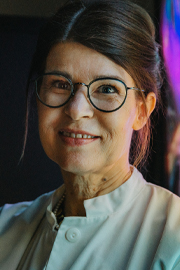
I have to say that I have always seen myself as a scientist first, and I believe that male and female scientists feel proud in similar situations. Yet, there are situations in the career of a female scientist that one can take particular pride in, for example, often being among the first women in higher-level positions. I actually grew up taking it for granted that I had the same career opportunities and choices as men.
Only when I entered my first leadership role it became very clear to me that women are underrepresented in these positions and that it is extraordinary to have reached this level.
A moment that particularly stuck with me was when I became a full professor as one of only four women in the entire faculty of medicine.
I have always been curious and fascinated by science, first by biology, physics, and mathematics and later by the brain in particular. With my career choice, I really followed my gut instinct, and I was the first one in my family to pursue such a path. When you are truly passionate about something, you will find a way to do it. You have to disregard expectations about your role in society.
Dame Jane Dacre, Professor of Medical Education at University College London and former President of the Royal College of Physicians of London
My proudest moment as a woman in medicine was when I was elected by the Fellowship as the President of the Royal College of Physicians.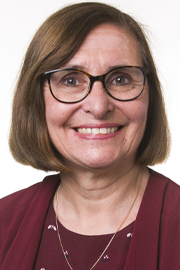 This College was given a Royal Charter in 1518 by king Henry VIII and has been influential in medicine since then. The RCP now has over 40,000 members from all over the world.
This College was given a Royal Charter in 1518 by king Henry VIII and has been influential in medicine since then. The RCP now has over 40,000 members from all over the world.
I was the third female president in its 500-year history, which was a huge honor.
I initially went into medicine because of a strong interest in the life sciences, coupled with a desire to help others. For me, it was a perfect career choice, and I have loved every minute of being a physician.
Dr. Benitta Müller, postdoc at the Institute for Mechanical Systems at ETH Zurich
There is no particular moment I remember, but being a part of the scientific community means a lot to me.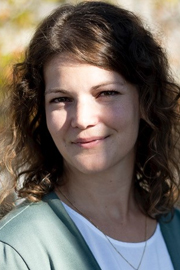 It is the feeling of being at the forefront of something new, creating something inspiring, and doing something meaningful that is very special to me.
It is the feeling of being at the forefront of something new, creating something inspiring, and doing something meaningful that is very special to me.
What makes me particularly proud is having the opportunity to prove that science doesn’t care about your gender and I am very thankful to get the chance to follow my dreams.
Dr. Nako Nakatsuka, Senior Scientist at ETH - Aptamer Biosensing
I had strong female role models growing up, from my mother, who raised me as a single parent, to my research mentors. These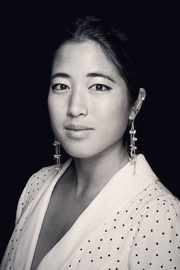 women taught me grit and always pushed me to strive for goals beyond what I thought I could achieve. When I joined ETH Zürich as a postdoc, I took on the role of a mentor to many students. Especially being in an electrical engineering department, some female students told me they felt out of place in classrooms and labs where they were one of few women in a male-dominated field. I had the opportunity to pay forward the self-assurance my mentors had instilled in me, to convince these students that they belong. It made me proud to see them rise above such insecurities and to demonstrate their capabilities through excelling in their research projects.
women taught me grit and always pushed me to strive for goals beyond what I thought I could achieve. When I joined ETH Zürich as a postdoc, I took on the role of a mentor to many students. Especially being in an electrical engineering department, some female students told me they felt out of place in classrooms and labs where they were one of few women in a male-dominated field. I had the opportunity to pay forward the self-assurance my mentors had instilled in me, to convince these students that they belong. It made me proud to see them rise above such insecurities and to demonstrate their capabilities through excelling in their research projects.
Everyone’s individual struggle in science is unique and being able to support women who need a confidence booster, is something that gives me purpose in my role and job.
I was inspired to pursue a career in science in high school because I was excited about the lab classes taught by an engaging teacher. But after two years of taking chemistry classes at my university, I was uninspired – I was unsure how chemistry could make a societal impact. Outside of courses, I ran for the cross country and track & field team in university, but I had broken my ankle in a race and was on crutches for six months. That was when I met Prof. Banerjee, who was my organic chemistry lab instructor at the time. Prof. Banerjee offered me a research project in tissue engineering to heal such injuries without the need for surgery using nanobiotechnology. It was the first time I made the connection between what I learned in the classroom and applying this knowledge to clinically relevant applications, which has been my motivator in scientific research since.
Dr. Nina Shah, Professor of Clinical Medicine at University of California San Francisco
Probably o ne of the proudest moments I've had as a woman in oncology has been when my mentor Dr. Elizabeth J. Shpall, won the mentor of the year award from the Women Who Conquer Cancer Awards run by the American Society of Clinical Oncology. This is because it was a nice way for her to get a reward for all of the wonderful things that she's done for women in medicine, which included providing 360-degree mentorship, as well as leading by example, and being a leader herself in her field of cellular therapy.
ne of the proudest moments I've had as a woman in oncology has been when my mentor Dr. Elizabeth J. Shpall, won the mentor of the year award from the Women Who Conquer Cancer Awards run by the American Society of Clinical Oncology. This is because it was a nice way for her to get a reward for all of the wonderful things that she's done for women in medicine, which included providing 360-degree mentorship, as well as leading by example, and being a leader herself in her field of cellular therapy.
Fortunately, there is not a single event but many moments where I was inspired by female scientists.
I look back at these moments, and I notice that these are women that have succeeded in the career ladder, and these are women that are still trying to figure out their path. But the common thread is that they show up - they do rigorous and innovative science, they mentor and educate the next- generation of scientists, and they advocate for others that don't have a seat at the table. I'll also add that many of these women are accomplishing while being mothers, international candidates, and facing other adversities. This makes me proud to be a woman in science.
Helen Vuong, Postdoctoral Fellow at University of California, Los Angeles
Fortunately, there is not a single event but many moments where I was inspired by female scientists. I look back at these moments, and I notice that these are women that have succeeded in the career ladder, and these are women that are still trying to figure out their path.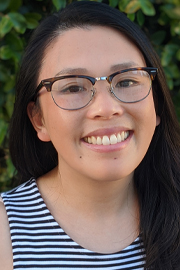 But the common thread is that they show up - they do rigorous and innovative science, they mentor and educate the next- generation of scientists, and they advocate for others that don't have a seat at the table.
But the common thread is that they show up - they do rigorous and innovative science, they mentor and educate the next- generation of scientists, and they advocate for others that don't have a seat at the table.
I'll also add that many of these women are accomplishing while being mothers, international candidates, and facing other adversities. This makes me proud to be a woman in science.
In all honesty, I did not grow up thinking that I would have a career in science. I am a first-generation college and post-college graduate, and growing up; there was not a lot of opportunities to get involved in science. I had no idea that you could have an entire career dedicated to research. My first exposure was as an undergraduate student at UCLA. I needed a job to help pay for tuition, so I signed up to wash dishes in a lab. All the while, I was eyeing graduate students and postdoctoral fellows doing experiments, and I asked if I could help.
The World Needs Science and Science Needs Women
Science, as well as gender equality, are both vital in achieving the UN's sustainable development goals, yet women still only represent 33.3% of the global research community. What more can be done to ensure equal access for women and girls in science?
Prof. Dr. med. Katrin Amunts, Professor of the C. and O. Vogt Institute for Brain Research at the University of Düsseldorf and Director of the Institute of Neuroscience and Medicine in INM-1 in Forschungszentrum Jülich
We need to empower women at all career stages, and we need to do so at a professional, mental and organizational level. I think that dedicated organizations and programs that offer targeted support for women in science are key. A good example is EAF Berlin, a non-profit organization that operates at the intersection of policy, economy, and science and particularly supports equal opportunities, but there are still not enough of such programs.
In addition to bottom-up support, I believe it to be crucial that we win over decision-makers to drive gender equality top-down. For real change to happen, decision-makers need to be convinced by the direct benefits of more equality rather than being driven by the desire to act politically correct. Research on the impact of gender equality on the success of industrial and academic organizations provides very important data to support the argument. More such studies should be supported.
Men and women need to drive equality together; both need to see the advantages, and both will benefit from the changes.
Dame Jane Dacre, Professor of Medical Education at University College London and former President of the Royal College of Physicians of London
I have become increasingly aware of the lack of equality for women in medicine and science. This has been highlighted by the small number of female colleagues in leadership positions. I led the work commissioned by the Department of Health and Care in England to look at gender pay gaps in medicine. Women in medicine and science earn less than men. Pay gaps are everywhere we look in medicine and are complex to unravel. With the support of Professor Carol Woodhams from Surrey Business School, we have studied the underlying causes of these pay gaps.
I see the gaps as a measure of inequality, which will reduce if we reduce inequality in science and medicine. In the UK, the NHS was set up in 1948, when the pay structures were based on the lives of men with wives at home. Recognizing that this structure needs to be updated, and implementing evidence-based change, is what we need. We have identified 42 recommendations across seven themes, which would make a difference – reduce inequality, based on evidence- and reduce pay gaps.
Dr. Benitta Müller, postdoc at the Institute for Mechanical Systems at ETH Zurich
Encouragement. Women and girls are oftentimes limited by boundaries that should not exist. They question themselves and their abilities and they want to be 100% certain of a situation before they take actions. We need to change this and create an environment that encourages the self-confidence of scientists and gives them a platform for communication without having the feeling that they need to hold back.
Dr. Nako Nakatsuka, Senior Scientist at ETH - Aptamer Biosensing
There are multifaceted aspects to tackle when we think about the global research community. In developed countries, I believe the key is to expose more young girls to science, technology, and engineering to eliminate gender stereotypes. I tutored a 5-year-old girl during my Ph.D. and brought over nanoscience experiments to her home, which significantly increased her interest. Excitement about science from a young age will lead to more women and other underrepresented groups wanting to pursue these fields. In turn, seeing role models that are relatable in research will encourage the retention of these individuals, as they will no longer be the "one" representative minority.
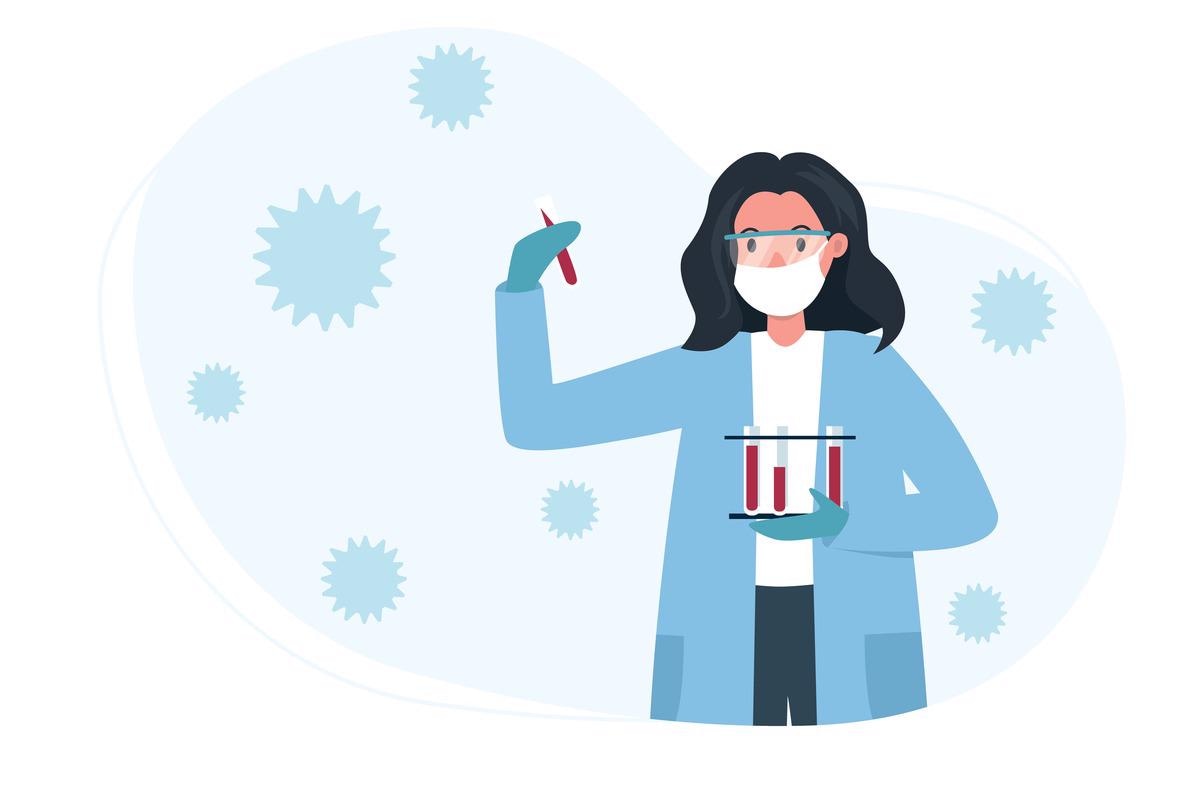 Image Credit: Hanna Karpiak/Shutterstock.com
Image Credit: Hanna Karpiak/Shutterstock.com
However, in developing countries, general accessibility to science is still needed, which necessitates improved infrastructure, teacher training, and scientific equipment. Since we live in a highly digitalized world, rendering highly rated high school/university courses accessible online may lower the barrier for students applying for fellowship programs at international institutions.
Dr. Nina Shah, Professor of Clinical Medicine at University of California San Francisco
I think first and foremost, we have to make sure that women are promoted to leadership levels and higher academic levels like professor, tenured professor, and endowed chairs, because the more that women see other women like that, they themselves will feel that it's possible to work hard and get to these spots without sacrificing everything.
Secondly, I think that all of us are changing, both women and men. We've divided all the tasks of life, not just academics, work, and making money, but the rest of life; all those tasks are now being divided more evenly between men and women. Because of that, the time course of when each of us, both men and women, are going to rise to the achievement level required to be in these positions may change, and it may be variable. So, we have to be flexible to accept that it might take a certain gentleman five years, where it would've taken three years for him to do something 20 years ago because he now shares part of child-rearing tasks. Similarly, it might take a woman five years versus three years. We have to be flexible and really look at a person's long-term career arc and not necessarily how long it took them to get there because there are always other factors involved.
Helen Vuong, Postdoctoral Fellow at University of California, Los Angeles
This is such an important question. To begin, there needs to be more awareness. Young girls need to have opportunities to be exposed to science and female scientist role models. This can come in the form of education, mentorship, internship opportunities, outreach, and funding. After equal access, the next question is how do we retain women in science. There is clear evidence that there are fewer women in higher positions in science. To combat this issue, there need to be institutional changes such as efforts to provide substantial maternity leave without affecting promotions, significant childcare support, non-traditional opportunities (i.e., teaching, program directing), and advocacy for women to be nominated for awards and talks.
The health sector has faced tremendous challenges over recent years regarding the ongoing COVID-19 pandemic. Yet, there have been incredible advancements, including the development of RNA vaccines and the continued incorporation of AI. Are there any particular innovations you are excited to see, and what do you believe the future of technology will look like within healthcare?
Prof. Dr. med. Katrin Amunts, Professor of the C. and O. Vogt Institute for Brain Research at the University of Düsseldorf and Director of the Institute of Neuroscience and Medicine in INM-1 in Forschungszentrum Jülich
I am particularly enthusiastic about the developments towards personalized medicine. By combing data from individual patients with data from large cohorts and populations, clinicians can predict the best treatment strategies for an individual person. We can already see the power of this approach in new cancer therapies as well as in targeting neurological diseases. Within the Human Brain Project, we integrate large, multi-scale datasets about the human brain with patient-specific data to generate personalized brain models. Such models help physicians, for example, with the identification of affected brain areas in epilepsy. They provide a precise tool to help individual surgery decisions and improve outcomes. A clinical trial with 400 epilepsy patients is currently carried out in France.
Dame Jane Dacre, Professor of Medical Education at University College London and former President of the Royal College of Physicians of London
The greatest innovation, which I am very excited to see, is not technological; it is cultural. The acceptance of flexible working, and working from home has really helped some women. The recognition that leaders in vaccine development are often women has been a breakthrough. Lets embrace an exciting future where we achieve equality for women in science, medicine, and everything!
Dr. Benitta Müller, postdoc at the Institute for Mechanical Systems at ETH Zurich
The past two years were indeed very challenging for the health sector, and it showed the importance of global communication. For me, an interesting trend in healthcare technology is towards collaborations between providers to enable patient-centered care. I am really excited to see advancements in telemedicine with the aim to improve patients' life.
Dr. Nako Nakatsuka, Senior Scientist at ETH - Aptamer Biosensing
I believe healthcare is going to transform towards remote diagnostics and telemedicine where you can conduct tests at home and be advised virtually. Such innovations will improve accessibility to healthcare, which is far from universal today, especially in areas with a shortage of doctors or individuals with insecure health coverage. This healthcare revolution will go together with technological developments for personalized medicine that enable health tracking by monitoring chemical biomarkers in addition to vital signs for early disease detection.
As a researcher in chemical diagnostics, these advancements are incredibly exciting for me. From personalized diagnostics, I envision a transition towards personalized treatments, where we can tailor medication dosages for individuals and release drugs in response to different biological cues in a regulated feedback system.
 Image Credit: plataa/Shutterstock.com
Image Credit: plataa/Shutterstock.com
Dr. Nina Shah, Professor of Clinical Medicine at University of California San Francisco
I'm particularly excited as a person who is a cancer physician about the innovations in immunotherapy. These innovations are not only in trying to find immune therapies that work based on what we already know but the discovery of the ways that cells work, their intracellular mechanisms, as well as different target antigen discoveries and different ways to produce immunotherapies. All of these are a way that I'm seeing us all think outside the box and think of innovative ways to use the immune system to fight cancer. I am excited about that.
Helen Vuong, Postdoctoral Fellow at University of California, Los Angeles
My research lab is focused on understanding the role of the microbiota on the development and physiology of the host. Over the past decade, an increasing number of peer-reviewed studies were published linking the microbiota to the development of a number of diseases and the potential to modify disease progression, mostly carried out in animal models. This is really exciting because the microbiota is a fairly tractable system and therefore provides promise for translation to therapeutics and preventions of diseases.
However, we still have so much to learn about how microbes affect our individual health, what are the mechanisms, and how best to harness and implement their therapeutic value. I look forward to seeing these questions answered in the next decade.
Banner image courtesy of AZoNetwork with material from plataa/Shutterstock.com